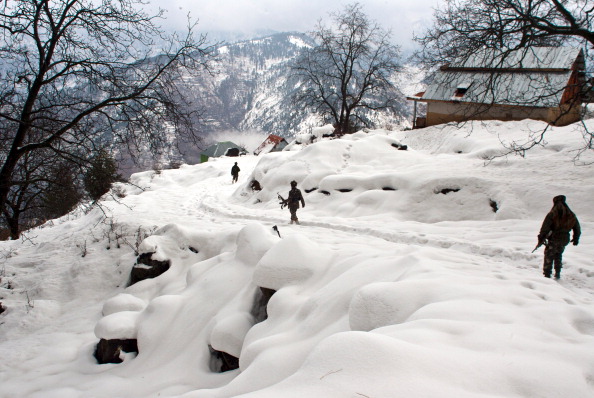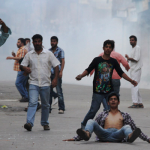
Protests Against Indian Rule in Kashmir - copyright Majid Pandit, used by permission
WHEN: Thursday, October 14, 10am – 11am Eastern US Time (19:30 in India/Kashmir)
WHERE: Follow Govind on Twitter @acharya_dude
HOW: Submit questions on Twitter any time from now through October 14 using hashtag #AskAI (adding @acharya_dude is helpful but not necessary). See below for other ways of getting in touch. Example: Is there a consensus in the Indian political spectrum about what’s happening in Kashmir? #askai
Kashmir has been convulsed by violent clashes between protesters and security forces. The current violence has left over 100 people dead and has raised concerns over the widespread human rights violations committed by Indian security forces in their efforts to tamp down the violence. The litany of abuses are long—heavy restrictions on Kashmiri media, heavy-handed curfews and outright killings of protesters. Worst of all, most of these human rights violations can occur with complete impunity because of the imposition of the Armed Forces Special Powers Act (AFSPA) in parts of Kashmir.
With India in the spotlight over 2010 Commonwealth Games and the violence not garnering the same attention in the media, it’s even more important for us to highlight the human rights concerns in Kashmir and to urge the Indian government and the Jammu and Kashmir state government to take immediate steps to prosecute security forces. India is also supposedly one of the new great powers taking over from US hegemony; therefore, it’s more important than ever to publicize human rights violations in Kashmir and elsewhere in India.
On Thursday, October 14 from 10am – 11am eastern US time, I’ll be holding a live chat over twitter from my twitter handle @acharya_dude (feel free to follow with your twitter account). It’s a way to get a new audience engaged on human rights in Kashmir. It doesn’t mean that you actually have to have a twitter account to see the questions and answers (but you do need one to ask a question on twitter)– just type in twitter.com/acharya_dude. The easiest way to get me a question is to include the following in a twitter message: @acharya_dude #askai.
You can ask me a question in the comments of this blog, you can email them to me at [email protected] and you could probably ask them on Facebook as well if you like the Amnesty USA page and if this post appears on the Facebook page. I’ll monitor those places and post them to twitter as I get questions. I’ll then respond to them between 10am and 11am eastern US time this Thursday, October 14. I will then post the twitter transcript to this blog afterwards! Let me know in the comments if you have any questions.
Update: Read a transcript of this chat here.






